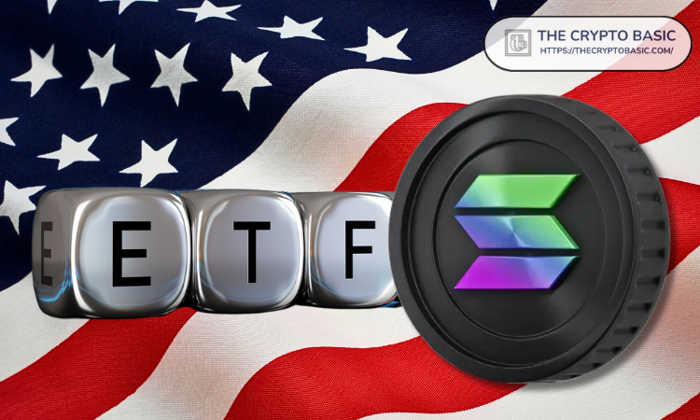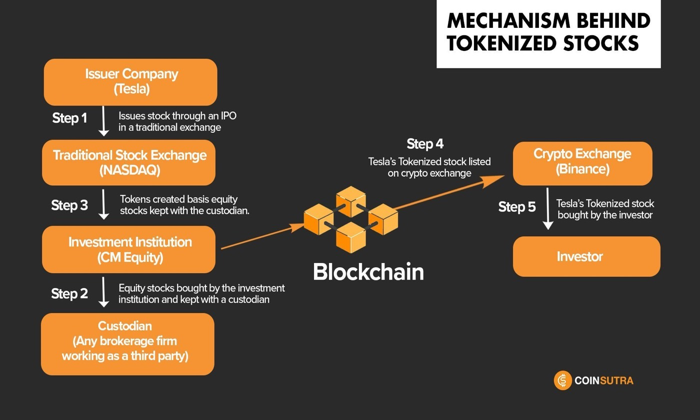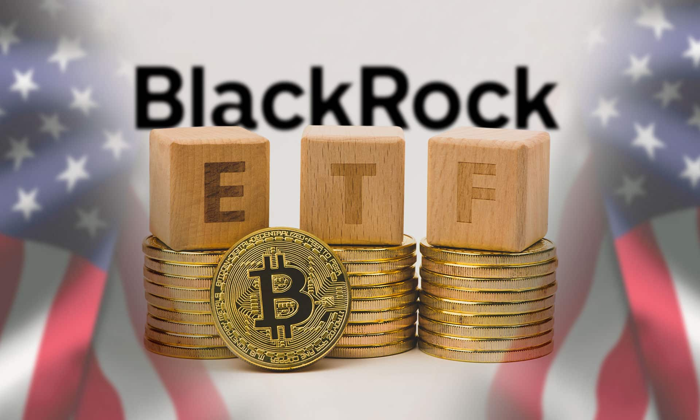The ongoing developments surrounding US Senate crypto bills have become a focal point of debate, particularly amid rising ethical issues linked to former President Donald Trump. Recent scrutiny highlights potential conflicts of interest as Trump’s connections to crypto companies and investments raise concerns over favoritism and corruption. Legal experts emphasize that these troubling ties could jeopardize the momentum needed for effective crypto regulation in the Senate. In this climate, the stablecoin controversy surrounding Trump’s alleged financial benefits from legislation draws significant attention. As lawmakers push for transparency, the intersection of Trump and cryptocurrency continues to pose challenges for bipartisan support over critical legislation.
The recent attempts to navigate the legislative landscape of cryptocurrency regulation in the U.S. Senate have hit notable obstacles, especially considering the implications of Trump’s affiliations with the digital asset sector. As discussions intensify, the need for clarity on stablecoins and their governance emerges as a pivotal concern. This backdrop of legislative action is marked by a complex interplay of ethics and political maneuvering, stirring interest in how American lawmakers will balance innovation with oversight. The surrounding controversies not only highlight the regulatory challenges but also emphasize the broader implications of these bills for the future of digital currencies. As the crypto community and political factions diverge, the path for establishing comprehensive regulatory frameworks remains unclear.
The Impact of Trump on Senate Cryptocurrency Legislation
The involvement of former President Donald Trump in cryptocurrency ventures has introduced significant complications in the US Senate’s efforts to pass essential crypto legislation. As Senators Elizabeth Warren and Jeff Merkley spotlight potential ethical breaches linked to Trump’s financial interests with companies like Binance and MGX, the ramifications for crypto regulation in the Senate have become starkly evident. Backroom deals and legislative stagnation seem inevitable as lawmakers grapple with the potential implications of Trump’s actions, raising questions about the integrity of the legislative process and the future of cryptocurrency regulation.
Concerns about ethics and foreign influence are not trivial; they underscore the precarious position of cryptocurrency oversight in a politically charged environment. With Democrats pushing for a thorough investigation into Trump’s dealings, the Senate’s bipartisan focus on critical crypto bills like the GENIUS Act is hindered. The irony lies in the fact that the stalling of these bills could pave the way for less oversight and regulation, potentially allowing unvetted projects and stablecoins to flourish unchecked.
Understanding the Stablecoin Controversy
Stablecoins, particularly the controversial USD1 stablecoin associated with WLFI, have become a focal point in the discussions surrounding Trump’s ties to cryptocurrency. The proposed $2 billion investment from MGX into Binance has raised alarms due to the sheer scale of potential financial conflicts arising from this transaction. As lawmakers describe the deal as a possible conduit for foreign corruption, the Senate’s ability to legislate effectively on digital assets requires transparency and ethical clarity that is currently lacking.
Moreover, the stablecoin controversy not only illustrates the complexities of crypto regulation in the Senate, but it also highlights broader fears regarding financial manipulation and transparency in the cryptocurrency market. Lawmakers must address the intricacies of stablecoins, ensuring they do not become instruments of unethical profit-making at the expense of robust regulatory frameworks. It is imperative that the Senate addresses these concerns to regain public trust and stabilize the burgeoning crypto economy.
Ethics Concerns and Political Resistance
The ethical dimensions intertwined with Trump’s connections to the cryptocurrency sector are generating more than just headlines; they are catalyzing political resistance to proposed legislation. With influential Democrats emphasizing the need for investigations and transparency, this resistance is showcasing the friction between political ambitions and the need for clear, concise crypto rules. Key political figures like Senator Rand Paul have publicly expressed hesitation to support current legislation, embodying the internal GOP challenge that disrupts any bipartisan efforts to advance crypto regulations.
Political resistance is not just a hindrance to legislation; it risks sowing discord within the crypto community and eroding public confidence in the regulatory framework being established. It is crucial for Senate leaders to navigate these turbulent waters and seek collaborative pathways to advance crypto legislation, despite ongoing ethical concerns. As the crypto market continues to evolve, aligning regulatory oversight with ethical practices will be paramount to avoid further political roadblocks.
The GENIUS Act: Roadblocks and Revisions
As discussions around the GENIUS Act unfold, roadblocks have materialized due to the ethical impasses involving Trump and his familial ties to the crypto sector. This bill, aimed at establishing a regulatory framework for US stablecoins, encounters procedural hurdles as lawmakers demand more detailed hearings before advancing legislation. The tension reveals a stark divide among Republicans, as some members like Senate Majority Leader John Thune propose modifying existing proposals to facilitate progress, while others express skepticism about the viability of the bill amid ongoing investigations.
Without timely revisions and bipartisan support, the GENIUS Act may stall indefinitely within the Senate, jeopardizing the future of cryptocurrency innovation in the United States. The need for prepared and comprehensive regulatory guidelines becomes more pressing amidst possible internal conflicts and external scrutiny. Therefore, Senate leaders should prioritize finding common ground to ensure that the evolving digital asset landscape is governed by rules that reflect ethical considerations and promote stability within the financial system.
Political Fundraisers and the Crypto Connection
Political fundraisers hosted by Trump have magnified the scrutiny surrounding his ties to the cryptocurrency world. The extravagant dinner events—charging up to $1.5 million per plate—raise eyebrows not only for their expense but for the implications they bring to discussions about ethics in cryptocurrency. The timing of such events following the controversies regarding Trump’s involvement with crypto firms poses a concern: Are political ambitions masking deeper conflicts of interest that deserve closer examination?
This intertwining of high-stakes fundraisers and cryptocurrency interests indicates the need for acute vigilance and scrutiny. As public trust continues to wane, the relationship between politics and potential profit in the cryptocurrency market can’t be ignored. Increased transparency will be essential in demonstrating that legislative deliberations are independent of any financial influence stemming from extravagant fundraising events.
Tech Giants and the Future of Crypto Regulations
The involvement of technology giants in the cryptocurrency space cannot be overlooked, especially as the Senate navigates the complexities of crypto regulation. The emergence of these companies amplifies the call for a regulatory framework that can adapt to quickly evolving technologies while safeguarding against unethical practices. As major players like Google and Facebook announce plans to explore digital currencies, their actions may catalyze the urgency needed to propel stablecoin legislation forward, despite existing ethical concerns.
Incorporating technology giants into the regulatory conversation could potentially bridge divides between lawmakers and the crypto community. Their insights may help shape a more comprehensive understanding of the risks and rewards associated with cryptocurrencies. By leveraging their experience, the Senate could develop regulations that encourage innovation while maintaining standards that minimize ethical pitfalls and promote a fair market for all participants.
Responses from the Crypto Community
The ongoing political pushback against crypto legislation has sparked vocal responses from key figures in the cryptocurrency community. Prominent supporters of digital assets are increasingly alarmed by the stalling of critical bills, such as the stablecoin legislation currently caught in the Senate’s crossfire. Tyler Winklevoss, co-founder of Gemini, has publicly criticized prominent political figures, urging them to reconsider their opposition and recognize the potential of cryptocurrency to drive future innovation in the financial sector.
This mobilization illustrates a crucial dynamic: the cryptocurrency community thrives on the ability to adapt and respond to regulatory environments. A lack of legislative progress could cultivate a culture of skepticism, as investors and innovators may seek jurisdictions more favorable to their interests. Hence, engaging with dissenters and working towards collaborative solutions could restore faith in the regulatory framework, ideally fostering a more welcoming ecosystem for technological advancements.
The Need for Comprehensive Crypto Regulation
The urgency for a comprehensive approach to crypto regulation has never been clearer, especially amid rising ethical dilemmas tied to key political figures. Cryptocurrency’s potential benefits are shadowed by the societal costs of failing to regulate this burgeoning market effectively. As various factions within the government contemplate the implications of crypto on the wider economy and consumer safety, establishing clear rules can mitigate risks and foster a healthier investment environment.
Regulatory clarity and ethical governance are paramount for the cryptocurrency community to thrive. Counteracting the turmoil around Trump and his potential conflicts of interest necessitates a strategic approach that prioritizes public trust while still enabling innovation. Balancing regulation with the encouraging growth of digital assets will be crucial to developing a sustainable framework that keeps up with the rapid changes characteristic of this industry.
What Lies Ahead for US Senate Crypto Bills
The future of cryptocurrency legislation in the US Senate remains in flux, caught between ethical investigations and the exigencies of political maneuvering. As lawmakers navigate this complex landscape, the anticipated vote on pivotal bills like the GENIUS Act becomes increasingly consequential. With ethics concerns looming large, there exists a palpable tension that may shape the trajectory of digital asset legislation for years to come.
As reactions from both the political sphere and the crypto community unfold, the Senate must solidify its stance on cryptocurrency regulations to ensure that the path forward is both ethical and conducive to innovation. The subsequent months will likely reveal whether the entanglements of politics can be disentangled to support the strategic objectives of the cryptocurrency sector, or whether these concerns will continue to impede progress and stall essential regulatory frameworks.
Frequently Asked Questions
What are the recent US Senate crypto bills affected by Trump ties?
The recent US Senate crypto bills, most notably the Guiding and Establishing National Innovation for US Stablecoins (GENIUS) Act, are facing challenges due to concerns around US President Donald Trump’s connections to the cryptocurrency sector, particularly involving investments linked to the UAE state-backed MGX and the exchange Binance.
How do Trump’s investments potentially impact crypto regulation in the Senate?
Trump’s investments in entities like Binance raise ethical concerns that may hinder bipartisan support for crypto regulation in the Senate. Some lawmakers are calling for investigations into how these financial ties could affect proposed legislation.
What is the stablecoin controversy surrounding the Trump family?
The stablecoin controversy centers on allegations that Trump and his family might profit from a $2 billion investment in Binance linked to a stablecoin called WLFI, which is seen as a potential avenue for foreign influence and corruption.
Why are there ethics concerns in crypto regarding Trump and cryptocurrency legislation?
Ethics concerns emerged over Trump and cryptocurrency legislation due to potential conflicts of interest involving Trump’s investments and his hosting of fundraising events connected to the crypto sector, raising questions about compliance with the Emoluments Clause and federal bribery laws.
What are the implications of stalling crypto bills in the Senate?
Stalling crypto bills in the Senate could delay the implementation of needed regulations for the cryptocurrency market, particularly regarding stablecoins. Lawmakers express that ethical concerns surrounding Trump’s influence could complicate negotiations and bipartisan efforts.
How does the Senate’s deliberation on crypto regulation reflect Trump’s influence?
The Senate’s deliberation on crypto regulation reflects Trump’s influence as some members of Congress advocate for additional hearings and scrutiny, attempting to ensure that proposed legislation, like the GENIUS Act, does not abet potential conflicts related to Trump’s financial interests.
What role is the crypto community playing in response to legislative delays?
The crypto community is actively voicing opposition to political delays stemming from Trump’s connections, with industry leaders criticizing lawmakers like Elizabeth Warren for obstructing progress on essential stablecoin legislation, which they believe is vital for fostering innovation.
What actions have Senate leaders taken regarding the GENIUS Act?
Senate Majority Leader John Thune has indicated a willingness to modify the GOP-backed GENIUS Act to facilitate its passage, hoping to garner input from Democrats amid ongoing concerns about Trump’s ties to the crypto market.
| Key Point | Details |
|---|---|
| Legislation Stalling | Crypto bills in the US Senate are facing resistance due to ethical concerns linked to Trump. |
| Ethics Investigation | Senators Warren and Merkley have called for an investigation into Trump’s potential financial conflicts with crypto investments. |
| Trump’s Dinner and Fundraising | Trump hosted high-cost dinners that raised ethical questions amidst crypto discussions. |
| GENIUS Act & Bipartisan Concerns | Amidst the controversy, support for the GENIUS Act for stablecoins faces challenges from both parties. |
| Internal GOP Issues | Some GOP members, including Senator Rand Paul, express uncertainty about supporting the crypto bills. |
| Crypto Community Response | Crypto influencers criticize lawmakers for obstructing important legislation. |
Summary
The US Senate crypto bills are currently facing significant challenges, primarily due to ethical concerns surrounding former President Donald Trump’s financial ties to the cryptocurrency sector. As legislators grapple with the implications of Trump’s connections, actions like hosting lavish fundraising events and potential conflicts of interest further complicate bipartisan efforts to pass crucial crypto legislation. Addressing these issues is vital for advancing the stablecoin regulatory framework within the US, as stakeholders in the crypto community emphasize the importance of moving forward with effective policies.
The US Senate crypto bills are currently experiencing a significant slowdown amidst ethical concerns related to former President Donald Trump’s connections to the cryptocurrency market. With mounting pressure from senators like Elizabeth Warren and Jeff Merkley, calls have been made for investigations into alleged conflicts of interest stemming from Trump’s involvement with major crypto entities like Binance. This scrutiny comes at a time when the Senate is gearing up to vote on crucial legislation aimed at regulating digital currencies, including the GENIUS Act focused on stablecoins. As issues surrounding the stablecoin controversy intensify, lawmakers are increasingly worried that the intersection of politics and cryptocurrency could impede the passage of vital regulatory measures. Consequently, the landscape for crypto regulation in the Senate has become fraught with complications, highlighting the urgent need for clarity and ethical transparency in this emerging industry.
As discussions heat up about potential legislation surrounding digital currencies, the Senate’s efforts to establish a coherent framework for cryptocurrencies are being hindered by ongoing controversies linked to Trump and cryptocurrency. Lawmakers are facing increasing scrutiny regarding the ethical implications of major crypto deals and investments, particularly the notable ties to foreign entities. The current climate surrounding crypto regulation has sparked debates among legislators, especially concerning stablecoins and their potential impact on the financial ecosystem. Additionally, the intertwining of Trump’s business ventures with digital assets raises broader ethics concerns within the political realm. Ultimately, the ongoing challenges facing crypto bills in the Senate underscore the complexities of balancing innovation with accountability in an increasingly digital economy.















